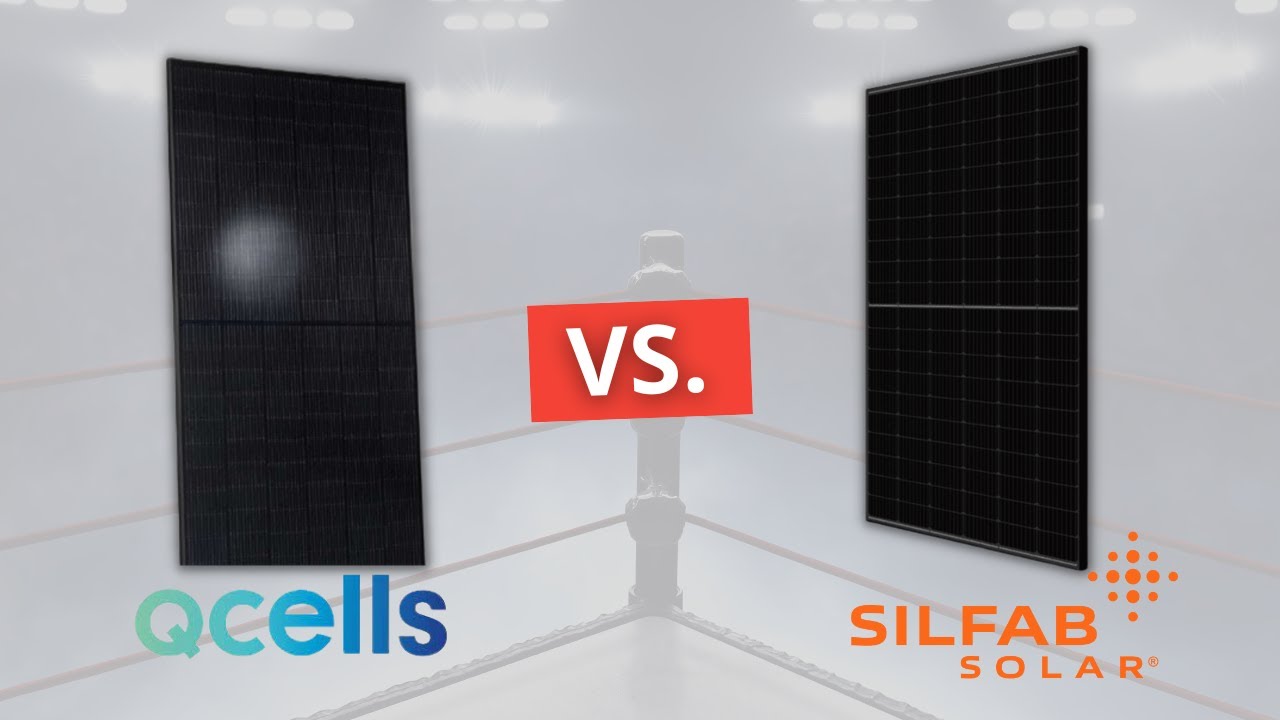Here you can find Solar Panels and technological accessories related to Solar Energy: Click Here If you want to learn about Solar...

Here you can find Solar Panels and technological accessories related to Solar Energy: Click Here
If you want to learn about Solar Panels, to advise you before buying or to build your own Solar Panel: Click Here
- Welcome to the Solar Energy Channel, where you'll get an honest, inside look at everything solar. I'm Warren, and with me today is Larry, and we're gonna talk about the difference between Q Cell panels by Hanwha and Silfab solar panels. (logo clicks) (paper rustling) So, Larry, we offer both of these solar panels to our customers. What's the difference? Why would you pick one over the other? Why would you use one over the other? - Yeah, so there's a couple of factors to keep in mind here. One is the cost. That's always a big one, and in this case, Silfab and Q Cells have a similar cost. They both have a commercial product. They both have a residential, all black product. So, they're very similar in nature. One of the things to keep in mind right up front here is that Hanwha Q Cells is a tier one manufacturer. They're a larger manufacturer, whereas Silfab is a smaller manufacturer. Hanwha's out of South Korea. Silfab's out of Canada. So, those are some of the things to weigh when looking at these two manufacturers. So just to clarify, tier one solar panel means that banks will lend money for these solar panels? - Correct. Correct. Tier one simply means that banks have been willing to lend money for projects with their solar panels on it. - So, what that means is that it's a solar panel made by a company that is in a good financial position. - Correct. - Yeah. What about efficiency between the two panels? - Again, very similar. Right now, we're using a Silfab 370, and we're using the Hanwha 400. Both of them are all black. The Hanwha's a little bit bigger footprint, physical footprint, and so the efficiency is very similar. We're looking in the 20 to 22% range for both. - So, if they're so similar in cost and in efficiency, how are you deciding between one or the other? - A big thing right now is availability. You know, which product is gonna be available? That's a big factor right now. A couple other things to look at would be product warranties. So, Silfab comes with a 25-year product warranty. For Hanwha, it varies between 12 and 25, but their residential product is also gonna come with a 25-year product warranty. Silfab does have a little bit longer production warranty on their product. They go all the way out to 30 years. They guarantee 82.6% at 30 years versus Hanwha's 86% at 25 years. Both really strong warranties. - Yeah. - But Silfab a little bit longer. - So, Larry, given the supply chain issues now, where are the Q Cells made, where are they coming from, and where are the Silfab solar panels coming from? - So, both of them do manufacturing in the US. - Okay. - A lot of our Silfab solar panels right now come from Canada, and some of our Q Cell solar panels come from South Korea. So, Silfab has a lot of manufacturing in Canada. Q Cells has a lot of manufacturing in South Korea. However, both are ramping up their US locations, and Q Cells is actually gonna have a significant amount of manufacturing in the US in the near future. - Given the new Inflation Reduction Act, which is all new information that we don't have a complete handle on right now, but we do know that there is language in there, there's provisions in the act that allow for additional incentives if the content or the products are US made or made by North American free trade partners. How will that impact either the Q Cell or Silfab panels? - Both of these companies are positioned very well to take advantage of this. - Yeah. - Like I mentioned, Q Cells is really building up their US manufacturing in Georgia. - Yeah. - They're looking right now, actively looking for additional manufacturing facilities, additional locations. So, they're ramping up, and they have a global presence. They have the capital to be able do this. Silfab, on the other hand, is a smaller company, but they're right next door. They're out of Canada, and so they're gonna have domestic manufacturing as well. - Thanks for watching. We hope you found this informative. If you want to watch other videos on solar panel comparisons, or inverted comparisons, or any other comparisons, click down in the link in the comments below. ...



No hay comentarios